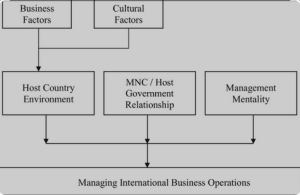Politics and international trade are deeply interconnected, as political decisions and policies can have a profound impact on the global flow of goods, services, and investments. Here are several ways in which politics and international trade intersect:

Politics and International Trade
-
Table of Contents
ToggleTrade Agreements and Treaties:
- Governments negotiate and enter into trade agreements and treaties to facilitate international trade. These agreements, such as free trade agreements (FTAs) and regional trade pacts, establish the terms and conditions under which countries conduct trade, including tariff levels, quotas, and rules of origin.
-
Tariffs and Trade Barriers:
- Governments use tariffs and other trade barriers as instruments of trade policy. Tariffs, which are taxes on imported goods, can be used to protect domestic industries, address trade imbalances, or influence the behavior of trading partners. The imposition of tariffs can lead to trade tensions and impact global supply chains.
-
Trade Policies and Protectionism:
- Political decisions influence a country’s overall trade policy. Protectionist measures, such as import quotas, subsidies, and other barriers, are sometimes implemented to shield domestic industries from foreign competition. This can impact the competitive landscape and trade dynamics.
-
Trade Diplomacy:
- Political leaders engage in trade diplomacy to promote their country’s economic interests. High-level discussions, negotiations, and diplomatic efforts can shape trade relations and influence the terms of trade agreements. Diplomatic tensions can also impact trade relationships.
-
Trade Sanctions:
- Governments may impose trade sanctions as a form of political leverage or to address perceived violations of international norms. Sanctions can restrict trade with specific countries or entities, affecting global supply chains and trade flows.
-
Geo-Political Events:
- Political events, such as geopolitical tensions, conflicts, and changes in government leadership, can have immediate and lasting effects on international trade. Uncertainty created by geopolitical events may lead to disruptions in trade and investment.
-
Currency Policies:
- Political decisions related to currency policies, such as exchange rate interventions and currency manipulation, can impact a country’s trade competitiveness. Changes in currency values influence export and import dynamics.
-
Intellectual Property Rights and Regulations:
- Political decisions regarding intellectual property rights, regulatory standards, and product safety can affect the trade of goods and services. Harmonization of standards and regulatory frameworks is often a key aspect of trade negotiations.
-
Environmental and Labor Standards:
- Political considerations, including concerns about environmental sustainability and labor conditions, can shape trade agreements. Discussions on incorporating environmental and labor standards into trade agreements highlight the intersection of political priorities and trade policy.
-
Multilateral Organizations and Forums:
- Countries participate in international organizations such as the World Trade Organization (WTO) to discuss and negotiate trade-related issues. These organizations serve as platforms for political dialogue and the resolution of trade disputes.
-
National Security Considerations:
- Governments may invoke national security considerations to justify trade restrictions. Political decisions related to perceived threats to national security can lead to the imposition of tariffs or other trade barriers.
-
Globalization and Anti-Globalization Movements:
- Political movements that promote or oppose globalization can influence trade policies. Anti-globalization sentiments may lead to calls for protectionist measures, while pro-globalization movements may advocate for free trade and open markets.
In summary, politics plays a crucial role in shaping the landscape of international trade. Political decisions, policies, and diplomatic efforts can either facilitate or hinder the smooth flow of goods and services across borders, making it essential for businesses and policymakers to closely monitor and adapt to the evolving political dynamics in the global trade environment.
